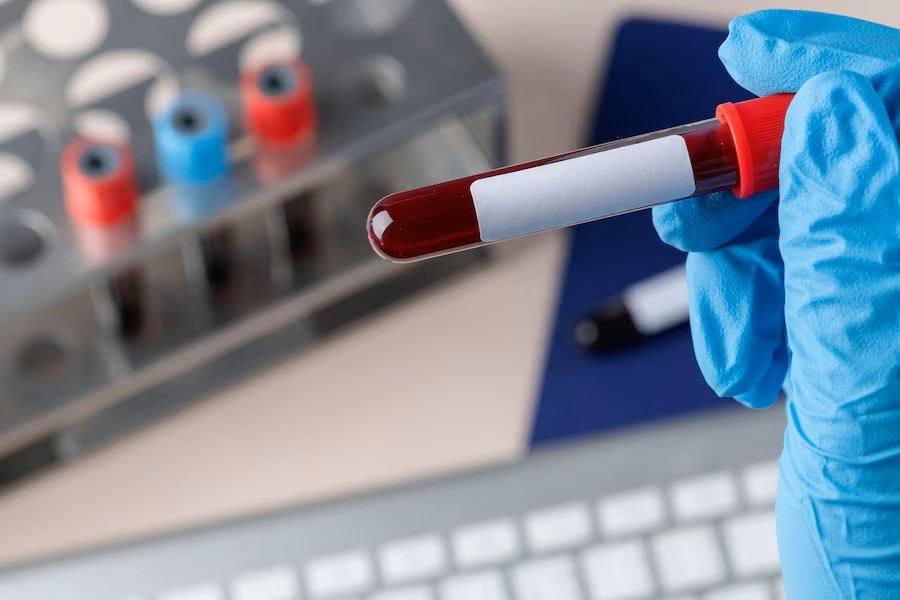Pemeriksaan IgE atau tes immunoglobulin E adalah salah satu cara yang efektif digunakan dalam mendeteksi adanya alergi di dalam tubuh. IgE merupakan antibodi yang diproduksi oleh sistem kekebalan tubuh sebagai respons tubuh terhadap alergen.
Jika Anda memiliki alergi terhadap suatu zat, maka tubuh akan memproduksi IgE yang spesifik untuk alergen tersebut. Ketahui apa saja manfaat pemeriksaan IgE khususnya terkait dengan masalah alergi yang Anda miliki.
Apa itu Immunoglobulin E (IgE)?
IgE adalah salah satu jenis antibodi yang dihasilkan oleh sistem imun sebagai bentuk perlindungan tubuh. Pada orang yang memiliki alergi, produksi IgE akan meningkat secara berlebihan sebagai respons terhadap zat tertentu yang sebenarnya tidak berbahaya.
Peningkatan kadar IgE memicu pelepasan zat kimia di dalam tubuh, yaitu histamin. Histamin inilah yang akan menyebabkan reaksi alergi yang ditandai dengan gejala seperti gatal-gatal, ruam, sesak napas, atau pembengkakan.
Melalui tes IgE, Anda dapat mendeteksi kadar antibodi IgE spesifik dalam darah. Tes ini juga membantu mengidentifikasi adanya alergi terhadap alergen tertentu.
Baca Juga: Apakah Perlu Puasa Sebelum Menjalani Tes Darah, dan Berapa Lama Puasanya?
Manfaat Pemeriksaan IgE untuk Mendeteksi Alergi
Tes IgE dapat dilakukan pada semua kelompok usia, termasuk anak-anak. Adapun manfaat utama pemeriksaan ini di antaranya:
Identifikasi alergen spesifik
Tes IgE memungkinkan identifikasi alergen secara spesifik, sehingga dokter dapat menentukan penyebab pasti dari alergi. Dengan mengetahui alergen tertentu, maka dokter dapat merekomendasikan cara menghindarinya dan menyesuaikan lingkungan untuk mencegah reaksi alergi di masa depan.
Baca Juga: Mungkinkah Alergi Muncul Akibat Karpet di Rumah?
Menentukan tingkat keparahan alergi
Tes IgE dapat memberikan gambaran mengenai tingkat keparahan alergi yang dialami. Kadar IgE yang tinggi menunjukkan respons imun yang kuat terhadap alergen tertentu. Ini dapat membantu dokter menentukan penanganan terbaik bagi orang yang mengalaminya.
Memantau perkembangan alergi
Pada anak-anak, alergi tertentu seperti alergi makanan dapat berubah seiring waktu. Pemeriksaan secara berkala memungkinkan dokter memantau perkembangan alergi tersebut, apakah gejalanya membaik atau memburuk.
Memberikan panduan imunoterapi
Beberapa orang mungkin membutuhkan imunoterapi untuk meningkatkan toleransi terhadap alergen. Imunoterapi bisa menjadi pilihan pengobatan yang efektif. Untuk merekomendasikan imunoterapi yang tepat atau jenis pengobatan lainnya, dokter perlu mengetahui hasil pemeriksaan IgE.
Pemeriksaan IgE perlu dilakukan saat Anda mengalami gejala-gejala alergi yang belum diketahui penyebabnya. Gejala-gejala tersebut seperti ruam, gatal, eksim, sesak napas, mual dan muntah, diare berulang atau gejala anafilaksis.
Bagi Anda yang sering mengalami gejala alergi atau memiliki riwayat keluarga dengan alergi parah, pemeriksaan IgE dapat menjadi langkah awal yang penting untuk mengelola gejala alergi yang mungkin juga Anda alami. Anda juga bisa bertanya pada dokter mengenai masalah alergi dengan berkonsultasi melalui aplikasi Ai Care yang dapat diunduh di App Store atau Play Store.
Mau tahu informasi seputar penyakit lainya? Cek di sini, yah!
- dr Nadia Opmalina
Pathology Test (2024). IgE (Immunoglobulin E). Available from: https://pathologytestsexplained.org.au/ptests.php?q=IgE+%28Immunoglobulin+E%29
American Academy of Allergy Asthma & Immunology (2024). Immunoglobulin E (IgE) Defined. Available from: https://www.aaaai.org/tools-for-the-public/allergy,-asthma-immunology-glossary/immunoglobulin-e-(ige)-defined
Medline Plus (2022). Allergy Blood Test. Available from: https://medlineplus.gov/lab-tests/allergy-blood-test/
Cleveland Clinic (2022). Allergy Blood Test. Available from: https://my.clevelandclinic.org/health/treatments/22345-allergy-blood-test
Paige Fowler (2022). What Are Histamines?. Available from: https://www.webmd.com/allergies/what-are-histamines
Cleveland Clinic (2023). Histamine. Available from: https://my.clevelandclinic.org/health/articles/24854-histamine
Sally Robertson, B.Sc (2024). Histamine Storage and Release. Available from: https://www.news-medical.net/health/Histamine-Storage-and-Release.aspx
Angel A., et all (2024). Immunotherapy. Available from: https://www.ncbi.nlm.nih.gov/books/NBK519046/












